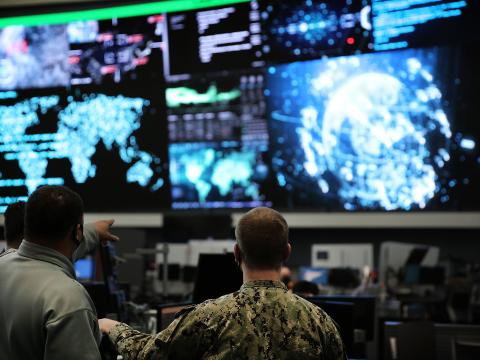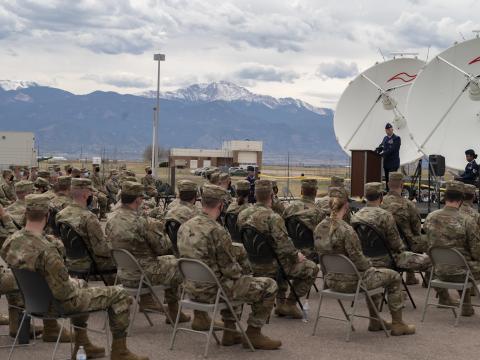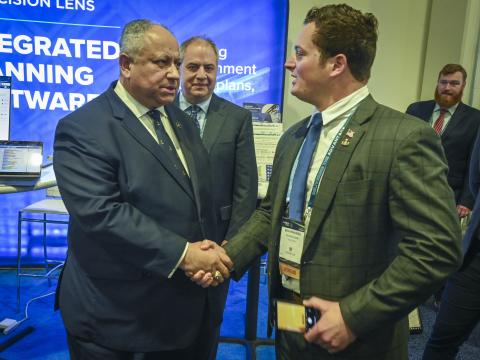The Changes War Brings
 |
Adm. Michael G. Mullen, USN, speaks at the North American Aerospace Defense Command, an organization that turns 50 this year. |
Adm. Mullen attributes the wide-ranging transformation currently underway in the military to the urgencies of war. Changes are occurring not only at the command level, the admiral points out, but also in the way the services recruit, retain, educate and train personnel.
NORAD and U.S. Northern Command (NORTHCOM) are prime examples of these changes, as they represent the shift in recent years from individual service organizations to joint commands with staffs comprising military, civilian and interagency personnel, the admiral notes. Only a few years ago, the U.S. Defense Department could not have envisioned the current state of jointness in the military and how this shift supports information sharing, military career enhancements and interagency cooperation, Adm. Mullen maintains. “I believe NORAD and NORTHCOM are right on the edge of what ‘interagency’ needs to become in the future,” he says.The admiral encourages NORAD and NORTHCOM to continue developing and strengthening their relationships with military and civilian organizations at the state level. Rapport at this level is particularly important because the number of both natural and man-made disasters and crises appears to be increasing, he notes.
Adm. Mullen also encourages the two commands to be the force for change. “You have a wonderful opportunity to continue to evolve the mission of homeland security and homeland defense with our state partners. You are at the center of that in many ways that no other organization in the country is, and my expectation is that you lead in that change,” he says.
The definition of protecting and defending the
Although the admiral is touting the importance of looking toward the future with leadership in mind, NORAD is preparing to celebrate a very special anniversary: its 50th. To mark this auspicious occasion, the command has a number of activities planned, including a formal Golden Jubilee Ball. Secretary of Defense Robert M. Gates is scheduled to be the guest speaker at the party, which takes place at the Broadmoor Hotel in
 Other activities planned commemorating the 50th anniversary include a family picnic and numerous air shows in
Other activities planned commemorating the 50th anniversary include a family picnic and numerous air shows in



